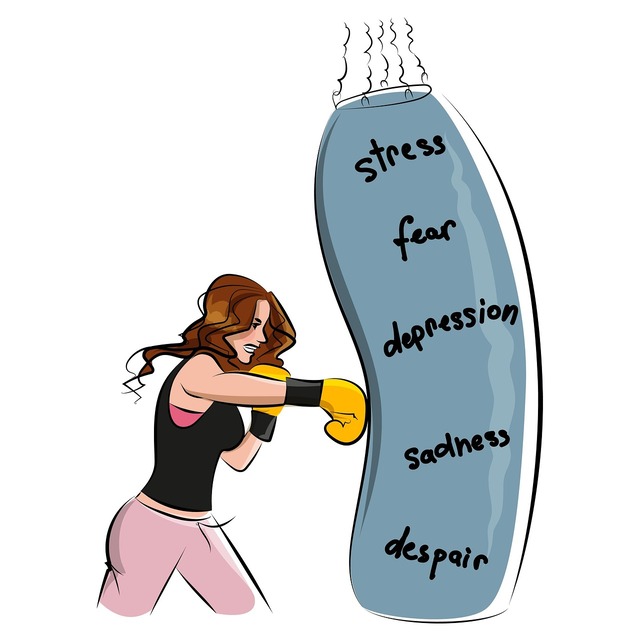Expert Reveals 5 Ways to Spring Clean Your Burnout From Your Life
- Over the past year, around 20% of workers in the UK have taken time off work due to poor mental health caused by pressure or stress.
- Burnout often leads to more employees taking time off, leaving others to work overtime just to keep up with the workload.
- According to Mental Health UK 35% of working adults admit they do not feel comfortable letting their line managers know they are experiencing stress and anxiety at work.
As the winter blues slowly recede into a sunny spring, it is important to plant some seeds of self-care. Many factors can contribute to feeling burnt-out at work including having a high workload, not feeling supported or listened to, lack of work-life balance, feeling stressed and pressured, and even being bullied or harassed.
Not only can you be experiencing these struggles at work, but factors in your personal life can also contribute to feeling burnt-out such as the cost-of-living crisis, relationship problems, and health issues. Feeling burnt-out at work can have a serious effect on your mental and physical health and ultimately cause you to have to take time off work.
The new year brings new challenges, and work can often feel overwhelming while the sun sets before 6.
With this in mind, the experts at the all-in-one mental health solution Meditopia have outlined wellness tips to help you deal with these pressures and reduce the risk of experiencing burnout.
What is burnout?
Burnout can be a variety of feelings and symptoms. These can include:
- Feeling exhausted or drained of energy
- Lack of motivation
- Not being able to do your job like you used to
- Anxious
- Irritable
- Trouble sleeping
- Headaches or stomach aches
Coping with burnout
Inform your line manager of your concerns
According to Mental Health UK around 20% of workers have taken time off work due to poor mental health caused by stress. This statistic emphasises the importance of speaking up and asking for help whenever you start to feel overwhelmed at work. Be open and honest about how you are feeling and the effect this is having on your mental health.
Ask for support and don’t be worried about asking for help with your work if you need it. This will help alleviate some of the pressure and stress you’re experiencing.
Outline what good mental health looks like to you
Take some time to think about what you’re feeling and why. Then outline what you perceive to be good mental wellbeing and what needs to be done to achieve a good sense of mental well–being.
Reflect on what is directly causing you stress and anxiety at work and away from work. Create a mental well–being plan to establish what you and others can do to offer support.
Set boundaries
Setting boundaries will ensure a better work-life balance. Define the hours you want to work and do not work beyond these hours. Make sure to switch off when you finish working, go for a walk, read a book, or watch your favourite TV show. It is also important to switch off during the weekends and annual leave, this is your own time and are not obligated to think about work.
If your workload has increased due to more employers being on annual leave, be honest with your manager and ask for flexibility regarding deadlines.
Get enough sleep
Adults need around seven to nine hours of sleep a night. Lack of sleep can affect mood and further increase feelings of anxiety and irritability. Sleeping whilst worrying about work can be difficult and you may find it hard to switch your mind off before going to bed. The best thing to do is to wind down for a couple of hours before going to bed.
Avoid screens as the blue light can disrupt sleep and try not to drink any caffeinated drinks in the afternoon. Spend time in the evening doing something that relaxes you, read a book, or do some yoga and meditate.
Take annual leave
Make the most of the annual leave you are given and take it when you are feeling overwhelmed or experiencing the symptoms relating to burnout. Continuing to work when you are feeling burnt out and exhausted is going to negatively impact your mental and physical health, causing you to have to take time off to recover. Your mental wellbeing is most important.
Fatih Mustafa Çelebi, Co-founder and CEO of Meditopia, adds,
“Feeling burnt-out at work affects your mental and physical well-being and can cause you to feel unmotivated towards the work you do.
“According to Mental Health UK 35% of working adults admit they do not feel comfortable letting their line managers know they are experiencing stress and anxiety at work. Therefore, it is even more important to encourage employees and employers to have open and honest conversations around burnout and how to manage feelings of stress and pressure in the workplace.”
Credit https://meditopia.com/
Help keep news FREE for our readers
Supporting your local community newspaper/online news outlet is crucial now more than ever. If you believe in independent journalism, then consider making a valuable contribution by making a one-time or monthly donation. We operate in rural areas where providing unbiased news can be challenging. Read More About Supporting The West Wales Chronicle
























